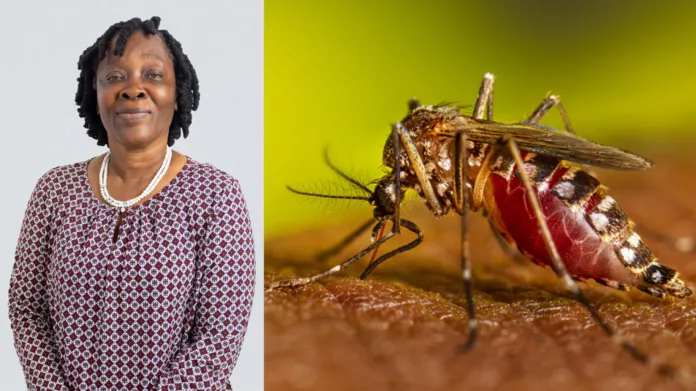
As Antigua and Barbuda observes Mosquito Awareness Week under the theme “Toss it out, clean it out, keep it out”, the Central Board of Health will be visiting a number of primary schools to raise awareness of mosquitoes.
Chief Health Inspector Sharon Martin said the activities which began with a church service on Sunday will culminate on May 26.
During an interview on Observer AM, Martin explained the stages whereby householders can do their part to control the spread of mosquitoes and by extension the diseases they carry.
Mosquitoes lay their eggs in stagnant water, so in order to determine whether or not mosquito larvae (commonly referred to as ‘wrigglers’ after the eggs are hatched) are in a container is as simple as looking inside, she said.
Usually, the wrigglers will wriggle away deeper into the water when someone’s shadow is cast onto it. Hitting the water container to disturb the water is also effective, Martin instructed.
If wrigglers are found, the water should be discarded immediately. If the water cannot be discarded, Martin recommends adding a few drops of cooking oil into the centre of the container as a last resort.
“It forms a film on the surface of the water … when they [wrigglers] come up to get oxygen, there will not be any oxygen for them to get, and they will die,” she explained.
To reduce instances where water containers provide a breeding ground for mosquitoes, Martin reminded the public to cover containers, either with its cover or a cloth tied over the top. Trays for plant pots and dish dryers should be monitored and water emptied.
She also explained that only female mosquitoes are equipped with the piercing mouthparts (proboscis) which allows them to consume human blood. Male mosquitoes lack this mouthpart and consume the fruit juice from plants instead. The blood female mosquitoes consume is used for egg production.
“They need the protein and iron contained in the blood supply … to help to mature the eggs,” she said.
Yesterday, Martin and her team engaged students of Urlings Primary School. Today they will visit Potters Primary, while on Wednesday, Thursday and Friday, they will visit Greenbay Primary, New Winthorpes Primary, and Freetown Primary, respectively.
The Aedes aegypti mosquito, which spreads debilitating diseases such as dengue fever, chikungunya, and zika, is commonly found in Antigua and Barbuda.
